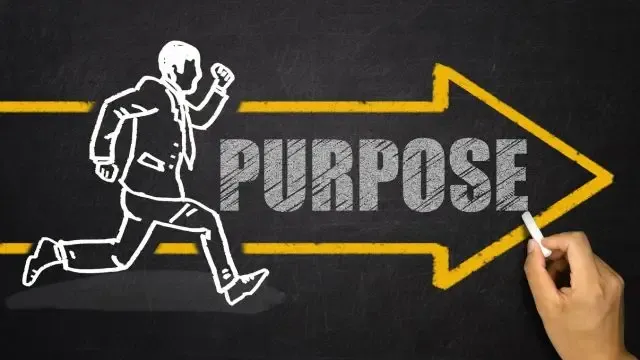 |
| Man on mental development process |
In the pursuit of personal development, mental toughness stands as a cornerstone, encompassing resilience, perseverance, and a fortified mindset. Regardless of whether you were born with an innate sense of mental toughness, the good news is that it can be cultivated over time. This article outlines fifteen transformative habits that, when adopted, can fortify your mental toughness, propelling you toward a more resilient and successful life.
1. Set Ambitious Goals for Unyielding Growth
Challenge yourself by setting clear and ambitious goals that demand hard work and dedication. Move beyond the realms of "safe" or "easy" objectives and embrace challenges that push your limits. Pursuing ambitious goals not only propels you to work diligently but also enhances your strength as you conquer obstacles along the way.
2. Embrace Discomfort for Lasting Resilience
Regularly step out of your comfort zone, willingly facing discomfort and uncertainty. Growth and learning seldom occur within the confines of comfort. Every venture outside your comfort zone contributes to your mental fortitude, making you stronger with each experience.
3. Cultivate a Growth Mindset for Continuous Improvement
Adopt a growth mindset by viewing setbacks, mistakes, or failures as opportunities for learning and growth. Instead of succumbing to defeat when faced with challenges, focus on continuous improvement. Embrace setbacks as integral parts of the learning process rather than roadblocks.
 |
| “Turn every setback into a comeback” |
4. Develop Resilience to Bounce Back from Setbacks
Learn to bounce back from setbacks and failures by reframing negative thoughts, maintaining a positive perspective, and actively seeking solutions. Cultivate resilience as a shield against self-doubt and self-pity, ensuring setbacks don't define your overall experience.
5. Harness the Power of Positive Self-Talk
Monitor your inner dialogue, replacing negative self-talk with positive affirmations. Positive self-talk boosts confidence and provides mental strength during challenging times. Your ability to maintain a positive internal dialogue contributes significantly to your mental toughness.
6. Master Stress Management Techniques
Effectively manage stress through strategies like mindfulness, deep breathing, or regular exercise. Acknowledge that stress is inevitable, and the key lies in how you manage it. Implement stress management techniques that resonate with you, fostering mental toughness through resilience.
 |
| Mental endurance |
7. Build Mental Endurance Through Challenges
Gradually expose yourself to challenging tasks, pushing your mental limits beyond the comfort zone. Avoid the monotony of the "same old, same old" and instead, seek new challenges. Each venture into the unknown contributes to building mental toughness, resilience, and valuable life experience.
8. Focus on Controllable Aspects of Life
Accept that absolute control over every aspect of life is unattainable. Concentrate on elements within your control, relinquishing concerns about external factors. This mindset prevents feelings of helplessness, fostering a sense of personal agency that bolsters mental toughness.
Read also: 7 Essential Books for Personal Development
9. Extract Lessons from Setbacks for Continuous Growth
Transform setbacks into opportunities for growth by objectively analyzing failures or mistakes. Extract valuable lessons from these experiences rather than dwelling on the negatives. Changing your perspective on setbacks contributes significantly to your mental toughness.
 |
| Purposeful living |
10. Align with Core Values for Purposeful Living
Identify and commit to your core values, providing a sturdy foundation for your life. Understanding your values creates a strong sense of purpose, motivating you to navigate challenges. By aligning with what matters most to you, you can confidently make meaningful decisions that contribute to your mental toughness.
11. Cultivate Strong Interpersonal Relationships
Invest time in building and maintaining positive relationships. Strong social connections provide support during challenging times, serving as a crucial element in fostering mental toughness. Surround yourself with individuals who uplift and encourage you on your journey.
12. Practice Mindfulness in Daily Activities
Incorporate mindfulness into your daily routine to enhance self-awareness and focus. Mindfulness techniques, such as meditation and deep breathing, can sharpen your mental acuity, contributing to a heightened sense of mental toughness.
 |
| Personal growth |
13. Set Regular Evaluations for Personal Growth
Establish routine self-assessments to track your progress and identify areas for improvement. This habit promotes self-awareness, allowing you to make necessary adjustments and continuously evolve on your path to developing mental toughness.
14. Cultivate a Strong Work Ethic
Develop a strong work ethic by consistently putting in effort and maintaining discipline. Hard work not only contributes to achieving goals but also instills a sense of accomplishment, reinforcing your mental toughness over time.
15. Embrace Adaptability to Navigate Change
Welcome change and adaptability as constant companions on your journey. The ability to adapt to evolving circumstances is a hallmark of mental toughness. Embracing change ensures you remain resilient in the face of unforeseen challenges.
Conclusion
Developing mental toughness is a continuous journey, marked by intentional habits and actions. By incorporating these fifteen habits into your life, you embark on a path towards enhanced resilience, unwavering perseverance, and a mindset that propels you to conquer challenges and achieve lasting success.
Frequently Asked Questions (FAQs):
Q1: How long does it take to develop mental toughness?
A1: The timeline varies for individuals, but consistently practicing these habits can lead to noticeable improvements in mental toughness over several months.
Q2: Can anyone develop mental toughness?
A2: Yes, mental toughness is a trait that can be developed through intentional habits and actions, irrespective of your starting point.
Q3: Are setbacks necessary for building mental toughness?
A3: Setbacks provide opportunities for growth, but mental toughness can also be cultivated through proactive habits and a positive mindset without relying solely on setbacks.
Q4: Is it possible to maintain mental toughness during extreme challenges?
A4: Yes, the habits outlined, when ingrained, contribute to a resilient mindset that can withstand extreme challenges.
Q5: How can mindfulness contribute to mental toughness?
A5: Mindfulness enhances self-awareness and focus, crucial elements in building mental toughness. It helps individuals stay present and navigate challenges with clarity.

